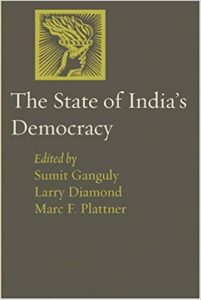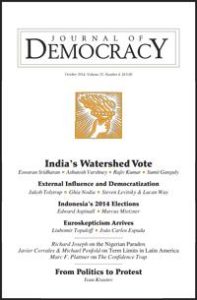 By abruptly revoking the special, constitutionally protected status of Jammu and Kashmir, India has become the latest major democracy to act against a minority community for short-term political popularity. Carefully maintained constitutional arrangements are in tatters, notes Ngaire Woods, dean of the Blavatnik School of Government at the University of Oxford.
By abruptly revoking the special, constitutionally protected status of Jammu and Kashmir, India has become the latest major democracy to act against a minority community for short-term political popularity. Carefully maintained constitutional arrangements are in tatters, notes Ngaire Woods, dean of the Blavatnik School of Government at the University of Oxford.
The shredding of longstanding protections for minority communities is part of a wider trend in democracies around the world. Three worrying features stand out, she writes for The Strategist:
- First, politicians are imperiling the ‘public square’, and the ability of citizens to argue, demonstrate and debate without the threat of violence. Political leaders are deepening social divisions by pitting an ‘us’ against a ‘them’ that includes foreigners, neighbors, immigrants, minorities, the press, ‘experts’, and ‘the elite’….
- Second, having won power through democratic elections, these leaders are seeking to weaken independent institutions and checks on executive power. ….Abusing emergency powers or executive orders, sidelining parliament and government agencies, and weakening judicial independence and the ‘referees’ that ensure political leaders play by the rules make it more likely that government decisions will not balance the interests of all citizens. These attacks on the independence of institutions leave minorities particularly vulnerable.
- Finally, there is a risk that political power in the world’s democracies is becoming more personalized. Patronage, personal influence and favors are being used to create loyalty to the leader, and those who fall out of favor are being bullied from office or arbitrarily fired. Political leaders are also making ever-bolder attempts to cow the media and business community into silence, or to co-opt them by offering special privileges.
 Rather than relying on outrage, democrats around the world need to apply with rigor the rules that prevent the personalization of power, while defending the institutions that protect individuals and minorities, adds Woods. Public officials shouldn’t be allowed to use their office to insulate themselves from accountability—through grants of immunity or presidential pardons to benefit friends and family members—or to hide evidence of their illegal behavior.
Rather than relying on outrage, democrats around the world need to apply with rigor the rules that prevent the personalization of power, while defending the institutions that protect individuals and minorities, adds Woods. Public officials shouldn’t be allowed to use their office to insulate themselves from accountability—through grants of immunity or presidential pardons to benefit friends and family members—or to hide evidence of their illegal behavior.
The norm of ballot secrecy, although widely accepted in principle, is often downplayed and loosely defined in practice, argue Jørgen Elklit and Michael Maley. As policy makers weigh new electoral options such as postal and internet voting, a better understanding is needed of secrecy’s many aspects and requirements, they write in Why Ballot Secrecy Still Matters, an article for the NED’s Journal of Democracy.







